-
Last updated on
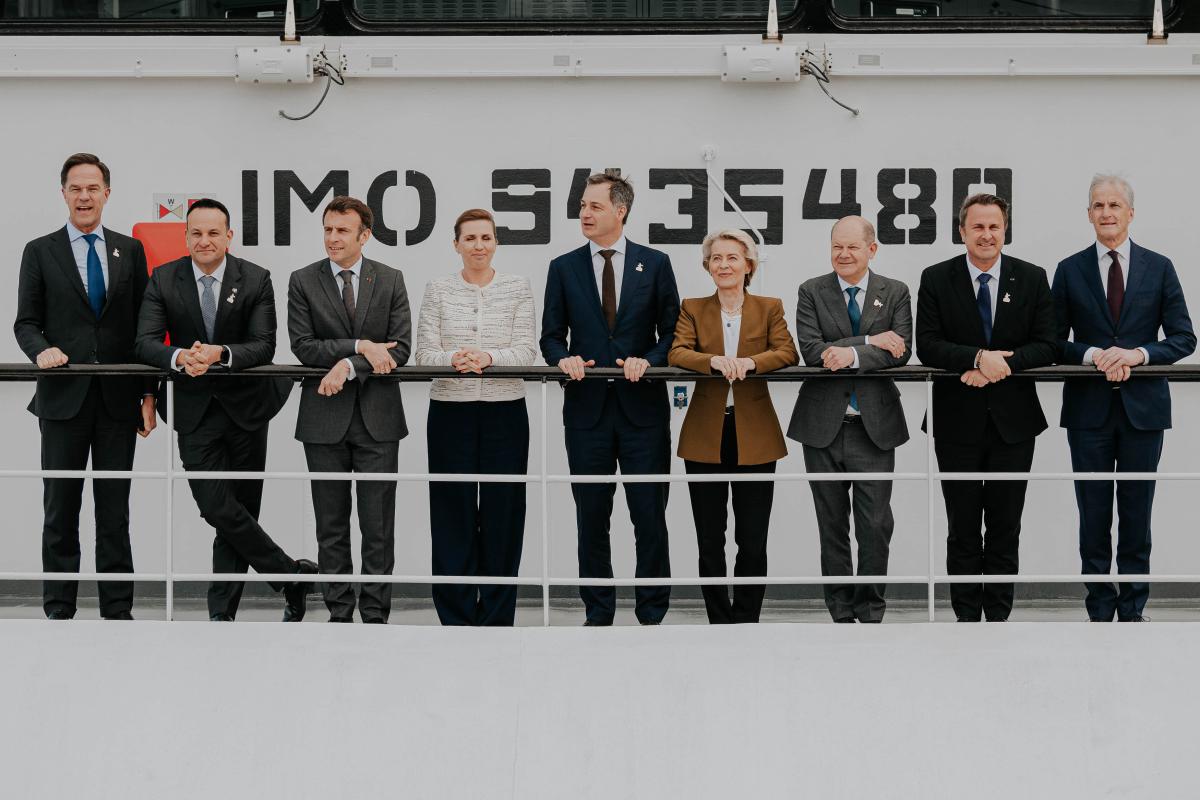
All heads of government - besides EU commission president Ursula von der Leyen - present at the North Sea summit. Only British Prime Minister Sunak was absent (© FPS Foreign Affairs).
In the Ostend Declaration, nine European countries commit to making the North Sea the largest green energy power plant in the world. Target: 120 GW of offshore wind capacity by 2030 and at least 300 GW by 2050. Belgium will play a key role.
On 24 April 2023, nine countries met in Ostend – at the invitation of the Belgian government – for what was referred to as a North Sea Summit. After all, the North Sea offers enormous potential for wind energy that we are not yet sufficiently tapping. This can only be done efficiently if several countries join forces.
The key word here is 'interconnectivity'. Insofar as possible, the wind farms of the various countries should be connected by a cable network. As such, electricity surpluses can be smoothly passed on and shortages efficiently replenished. After all, it is always blowing somewhere, but not everywhere at the same time.
Wind power and hydrogen
The summit in Ostend followed the first-ever North Sea Summit held last May in Esbjerg, Denmark. There, Belgium, Denmark, Germany and the Netherlands agreed to quadruple their combined offshore generation capacity to at least 150 GW by 2050.
Ostend also hosted France, Ireland, Luxembourg, Norway and the United Kingdom, alongside the European Commission. The final declaration stated that all the countries together are aiming for at least 120 GW of offshore wind power by 2030, and over 300 GW by 2050. Ireland's participation will also make it possible to harness wind energy from the Irish and Celtic Seas. With 300 GW, 300 million European families could be supplied with cheap North Sea power.
Germany, Denmark, the Netherlands and the United Kingdom also want to produce renewable hydrogen from wind energy. Around 30 GW by 2030 and hopefully a good deal more by 2050.
By comparison, the five nuclear power plants currently running in Belgium have a capacity of 4 GW – enough for about a third of Belgium's electricity. Belgium's current offshore power capacity amounts to 2.2 GW and will grow to at least 6 GW in the future.
Highly urgent
The unanimity and enthusiasm of the participating countries clearly has to do with the urgency of the situation. The International Climate Panel's recent summary report put it plainly: urgent and large-scale action is needed to slow down climate change and prevent its harmful effects on welfare and prosperity as far as possible. Moreover, Russia's war in Ukraine has made it clear that Europe must accelerate its independence from fossil fuels.
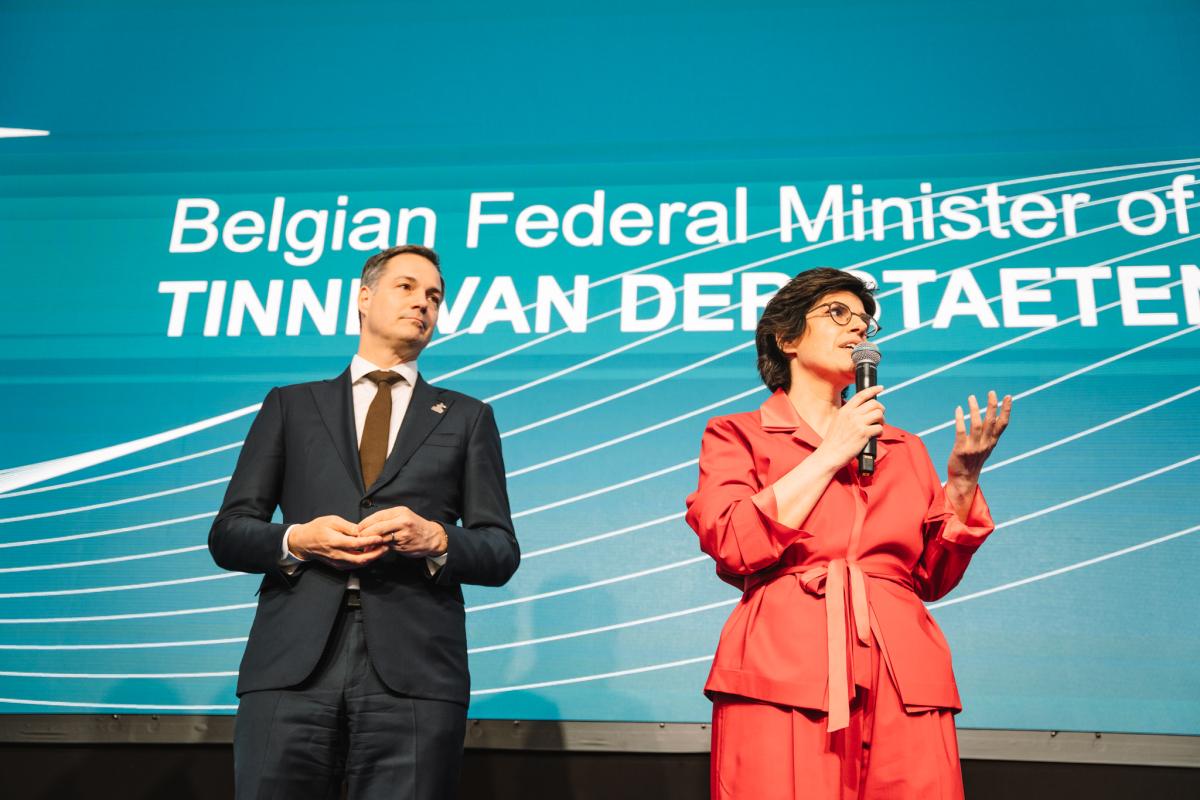
Prime Minister De Croo and Energy Minister Van der Straeten hosted the North Sea Summit. Energy ministers from the participating countries also signed a declaration of intent in Ostend (© FPS Foreign Affairs).
Ambitious
The countries participating are fully aware that the goals are ambitious. More than 120 European companies also attended the summit. Their presence emphasised the importance of collaboration with industry. The Ostend Declaration also seeks to diversify as far as possible the imports of the critical raw materials needed to make batteries, wind turbines and suchlike. In addition, the infrastructure for offshore renewable energy and high-voltage grids should be as circular as possible. In other words, all components must be readily reusable and recyclable. And the licensing procedures for wind farms need to be able to be handled far more smoothly.
Security is also an absolute concern, which is why NATO also joined the table. After all, cable connections and infrastructure are susceptible to espionage and sabotage. It will be necessary to monitor the power lines regularly, possibly through underwater drones, and install cameras at the wind farms.
The participating countries also want to commit to capturing, using and storing CO2. On that last point, certain geological formations in the North Sea offer some unique opportunities. The countries desire better collaboration around that, too.
All this should not make us lose sight of the need to protect the marine environment with its biodiversity and build robust and healthy ecosystems insofar as possible.
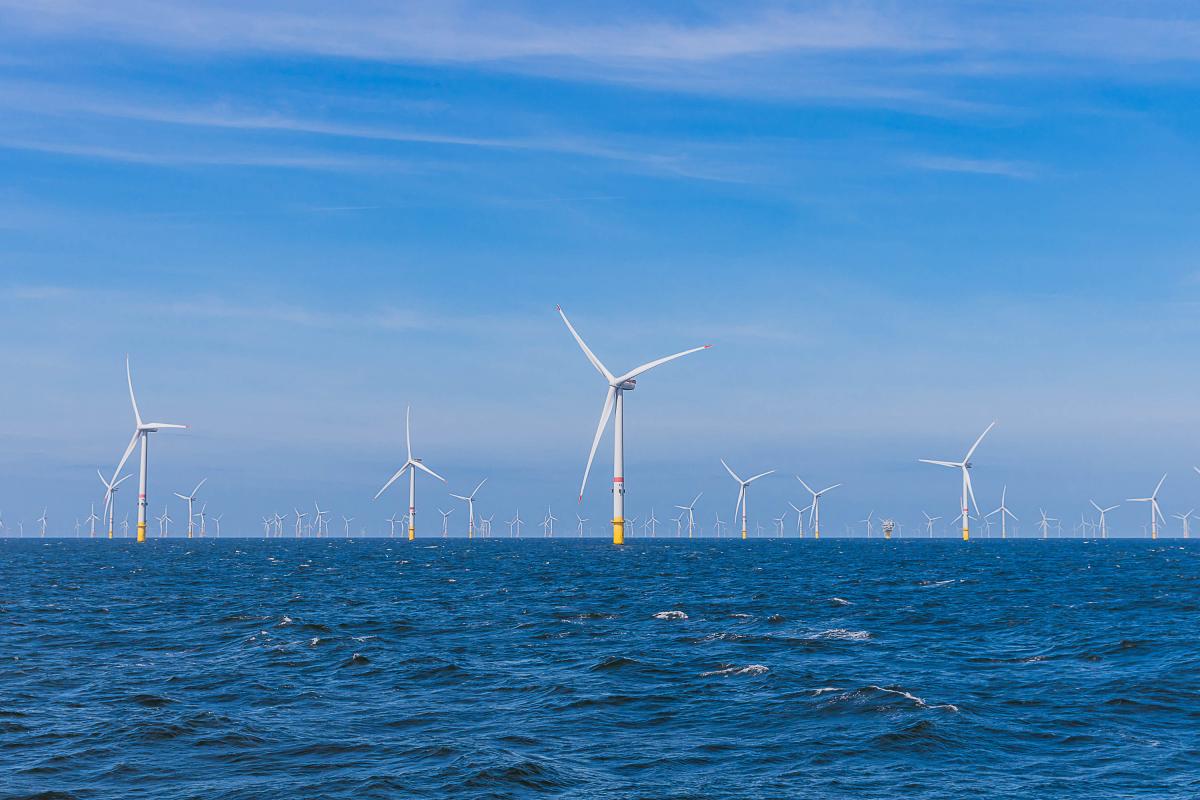
Belgian wind turbines in the North Sea. Our country has been at the forefront of offshore wind energy for 30 years (© FPS Foreign Affairs).
Belgium will take a leading role
Hosting the North Sea Summit allowed Belgium to put its offshore energy industry more firmly on the map. Belgium has been at the forefront of offshore wind energy for 30 years, and it wants to continue to play a central role, especially now the world urgently needs renewable, carbon-neutral energy. We have innovative wind turbine technology, top-quality dredgers and expertise in marine environmental protection.
The Belgian Princess Elisabeth energy island that is soon to be built, with its interconnectivity – the very first artificial energy island in the world – will be the model to be pursued. It will form a central hub where power from several wind farms in the North Sea will come together for transit to the European continent. For now, connections have been provided to Denmark and the United Kingdom, but that may be extended to Norway, Germany and the Netherlands.
Important task for our diplomacy
Our diplomats have also been working for years to spread Belgian expertise in renewable energy. They are supporting Belgian companies in making the necessary contacts, such as recently in Canada. Today, State visits (South Africa) and princely economic missions (US, Japan and recently Senegal) also invariably highlight our expertise in green energy. Many countries, including in South-East Asia, are showing tremendous interest in our offshore and clean-tech expertise that our diplomatic missions are eager to capitalise on.
The North Sea Summit in Ostend is an additional asset for making the most of our pioneering role in offshore wind energy worldwide. Our diplomats will also closely monitor relevant developments within the energy sector.
More on Planet
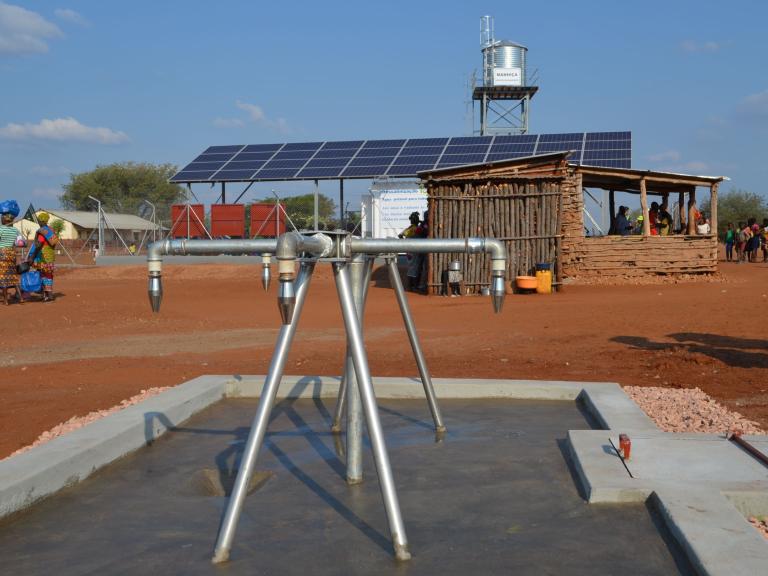
Water – a global and holistic approach is needed
A water conference organised by the Belgian Development Cooperation should provide the impetus to make water a central theme. Wi...
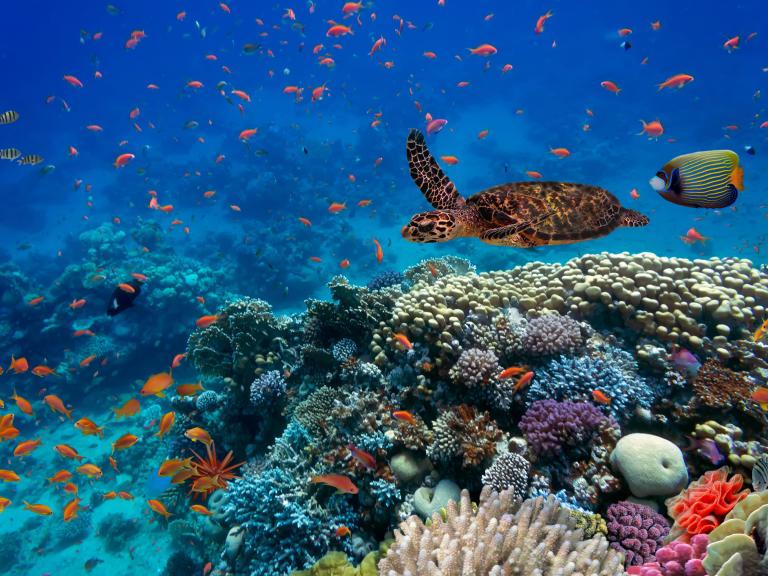
First crucial step for the UN Agreement that can protect biodiversity on the high seas
On 4 March 2023, the UN settled on an agreement enabling the protection of biodiversity in the high seas. Our FPS took an active...
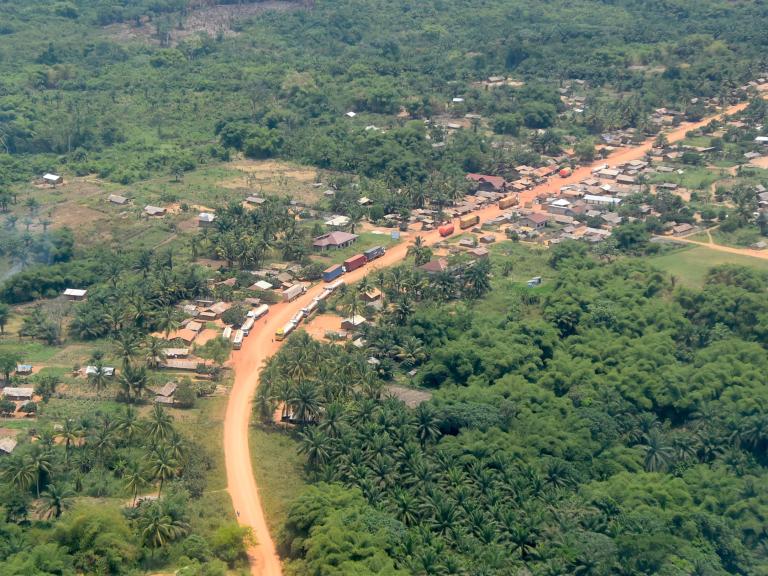
Belgium funds biodiversity conference in the Congo Basin
For many years, Belgium has supported countries such as DR Congo in the implementation of their obligations that arise from the ...
